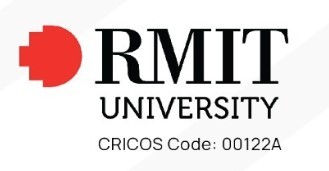
Master of Interior Design


Overview
Duration
FULL-TIME 2 YEARS
FULL-TIME 2 YEARS
Scholarship
YES
YES
Fee
AU$46,080
AU$46,080
Intake
FEBRUARY, JULY
FEBRUARY, JULY
Overview
- The Master of Interior Design will provide you with an opportunity to position yourself in relation to current interior design practice through collaboration with clients, industry and a network of peers.
- With an emphasis on ideas and a design-led approach to research and experimentation, the knowledge and skills you develop in this course will enable you to work in a range of practices, and to engage interior design as an agent of social and cultural change.
- Graduates of this course will be highly effective team contributors with strong communication and technical skills. You will learn how to be a valuable contributor through the process of developing a collective response to real industry briefs. You will engage with clients (encompassing commercial, institutional, civic and social organisations) and industry practice partners (interior design and associated design practices) together with the student cohort on live projects and challenges.
- With a strong focus on design challenges affecting the broader Australasian region, you will also have opportunities to undertake global intensives to locations within Asia.
Inquire Now
Career
- Graduates of this degree may find careers in interior design and architectural practices where they may be involved in design development, concept development and implementation, strategic leadership, feasibility studies, competition bids, client presentations, and site management.
- Commissions could include restaurants, hotels, retail spaces, corporate offices and public buildings.
- They may also find employment in advisory and strategic roles that utilise design skills, critical thinking and spatial knowledge in broader fields of work, including cultural institutions, placemaking, local government, business, cultural events, and education.
Entry requirement
- To study this course you will need to complete one of the following English proficiency tests:
- IELTS (Academic): minimum overall band of 6.5 (with no individual band below 6.0)
- TOEFL (Internet Based Test - IBT): minimum overall score of 79 (with minimum of 13 in Reading, 12 in Listening, 18 in Speaking and 21 in Writing)
- Pearson Test of English (Academic) (PTE (A)): minimum score of 58 (with no communication band less than 50)
- Cambridge English: Advanced (CAE): minimum of 176 with no less than 169 in any component.
Popular Courses
Start your journey with landmark today!
Find your perfect course
Answer a few questions and
our course matcher will do the rest
Head Office
Level 5, IT Plaza
Kamaladi, Kathmandu
Tel: +977 14542781, 9845566225
E-mail: info@landmarkedu.com
Kamaladi, Kathmandu
Tel: +977 14542781, 9845566225
E-mail: info@landmarkedu.com
Sydney office
Suite 1 Level 1,
46 Macquarie Street,
Parramatta, NSW
Tel: +61 415 122 814
46 Macquarie Street,
Parramatta, NSW
Tel: +61 415 122 814
Branch office
Sahidchowk, Chitwan
Tel: 056-590825
Tel: 056-590825
Mahendrachowk, Biratnagar
Tel: 021-590828
Tel: 021-590828
Level 2, Milanchowk, Butwal, Rupandehi
Tel: 977-71-591694
Tel: 977-71-591694
© Landmark Education. All rights reserved.


